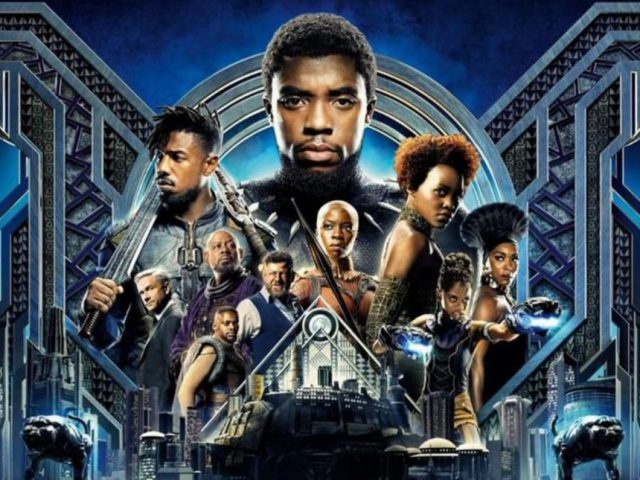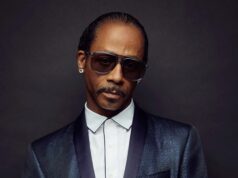Black Panther: The superhero movie just about to hit Africa
(First Published – Feb. 03, 2018)
By ANYANG’ NYONG’O @anyangnyongo
In a few days, Kenyans will be watching a new movie called Black Panther, in which three of Africa’s leading actors in Hollywood will appear: Daniel Kaluuya from Uganda/UK, Danai Gurrira from Zimbabwe/US and Lupita Nyong’o from Kenya/Mexico.
Many have described Black Panther as an American superhero film based on the Marvel Comics character by the same name. But I doubt whether Ryan Coogler would have taken the trouble to direct this movie, weave it together the way he did and cram it with an almost all Black cast of brilliant actors if all that was in this movie were mere “comics”! There is more to this action-packed movie that one can only discern by reflecting on the messages that the actors keep on passing. And it is a very interesting reflection about Africa’s predicament and “the history we have missed to make so far”.
Just one disclaimer: The movie is not about the Black Panther Party that Bobby Seal and Huey Newton founded in Oakland, California, in 1966 to fight for the political, economic and civil rights of African Americans “marooned” in capitalist and racist US, although it discusses similar issues in the context of an African nation which was never colonised by anybody.
The question is: Why did Coogler, the director of the movie, find it useful to discuss these issues through the vehicle of a film like this? My answer is very simple. A well-done movie that can hold the attention of the audience from the beginning to the end, with suspense and entertainment, is a very powerful visual weapon with which to educate people. This is one such movie. But what is the education all about?
Remember that Wakanda is not a real place: It is an imaginary place. Just imagine an African nation that was never colonised, had its own civilisation and decided to develop on her own steam by empowering her people without leaving the women behind. What would such a nation be capable of doing, especially when it discovers that it has some precious minerals that it can sell to the outside world and use the wealth to modernise society without destroying her own culture and way of life?
Sometimes we think that we have two choices to make in Africa. Choice one: We maintain our traditions and cultures and stay backward for ever. Choice two: We modernise by becoming westernised and forgetting our cultural traditions which, by their very nature so we think, are stuck in the past. The experience of the Wakanda people teaches us otherwise. There are really no two choices. The choice is simply one. Given that we are who we are, how do we improve our life chances in this world by getting the best out of science and technology and getting to the top of global civilisation? This is a story about leadership, systems, laws, culture and succession. It is a story about legitimacy, loyalty, betrayal and the role of women. This is a story about youth and technology. This is a story about human values. It is a story about community and teamwork.
In Wakanda, ascension to the throne if challenged must be settled by an “ordeal by combat”, a bloody affair where the loser is physically vanquished under the supervision of the high priest. That is the law agreed to by everybody, obeyed by the high and the low and not to be compromised by anybody. The rules of the political game are clear in Wakanda, and no incumbent king or prince royal can ignore them for some selfish gain.
Once on the throne, the king is constantly reminded of his mission to his people: The need to look after the welfare of everybody, while maintaining the highest standards of honesty and integrity as a leader. He is also reminded that a prosperous Wakanda must never forget that she has some poorer neighbours which need her help and support to develop. Wakanda, as it were, must never assume that she is simply an island of prosperity with no other responsibility to the outside world.
But all this does not happen in a sea of political tranquility. Indeed the turbulent politics of Wakanda can be seen in the contradiction between granting everybody the freedom they deserve while being aware of opportunists, mercenaries and saboteurs who are always out to exploit this liberal atmosphere for purposes of anti-people activities within and outside the state apparatus. Quite often the rich and powerful sabotage the freedoms won by the people to stay in power by force, trickery, bribery and war mongering.
Wakanda reveals what happens to “estranged citizens”. It showcases growing disquiet and disapproval, among the downtrodden, disrespected and upright community members. It exposes ignoble, arrogant, wasteful, self-centred and corrupt leadership conduct that inevitably leads to popular rebellion since it is contrary to the acceptable norms of the Wakanda sense of good governance and the sovereignty of the people.
What is most impressive in all this intricate story of political power is what true independence means, coupled with the real power of the people and a people-centred development. All of this is portrayed in the world of real politics and not in a mythical “never never land”. And that is why showing this movie in Africa is very important at this point in time for the following reasons.
First, that if we rely on ourselves and use all the resources we have imaginatively, we can achieve wonders. Technology and science is now available globally. If the Chinese and the Singaporeans can use science and technology for endogenous development why can’t we?
Two, that it is important to be consciously aware of who we are, and the context and historical times in which we are operating. There are opportunities as well as threats that we must confront imaginatively on a daily basis. And finally, our people are our strongest resource.
And that last sentence reminds me of something the late Amilcar Cabral, the nationalist leader from Guinea Bissau, once said while giving a lecture in Lisbon during the struggle by his party, the PAIGC, for liberation from Portuguese colonialism. Cabral was asked how they could successfully carry out a guerrilla war in a place such as Guinea Bissau, where there were no mountains. Cabral answered, “Our people are our mountains.”
And that is the point. Quite often, in many African countries today, we easily forget that our people are our mountains. Or, to put it differently, the centre of development is the individual human being as a citizen, not some abstract statistic that we very often rely on as indicators of development. Yes, indicators they indeed are: But what they actually indicate must be seen in the lived experience of that particular human being.
It was impossible to see a desolate, fly-infested face in Wakanda, the kind of face that wins the sympathy of so-called development agents. Remember what Walter Rodney told us regarding How Europe Underdeveloped Africa. What comes to us as aid today is what I call “a weak response to pay back time”. Those railways that the British built, plenty of wealth came from us to make that possible. It is time for Africa to receive the dividends of true reparations across the oceans so that global justice is not only done but is seen to be done so that we can have homegrown Wakandas in Africa in our life time.
Black Economics Commentary
Yes, while Black Panther is a movie that educates and entertains and is a visual feast, this film’s effect may become wide reaching – beyond Marvel’s imagination. It stirs up something within the black race, and other races are quietly stunned by the possibilities.
Could this last paragraph ever become a reality? Could reparations be paid? Raising the prices of the essential resources that the world continues to rape from Africa would be a start. Stopping corruption, and the misuse of funds would be a great move. And adopting innovative strategic plans to develop trade and exports would be even better.
Could the movie Black Panther cause a sea change in Africa? This could be a turning point and we will be watching very carefully. We plan to provide a study of the economic situation 70 years ago; the economic situation 20 years ago, the status quo now, and possible state of affairs 20 years from now.
One can see how much the cast of Black Panther are enjoying their world tour to promote the film. It is also a beautiful time for Papa Nyong’o realising what his offspring has done and his chest must be bursting with pride. Congratulations ANYANG’ NYONG’O on a job well done. In my experience there is something about the Kenyan people. Those I have been close with are extra-ordinarily wise.
Source – Kenya Star Newspaper
https://www.the-star.co.ke/










